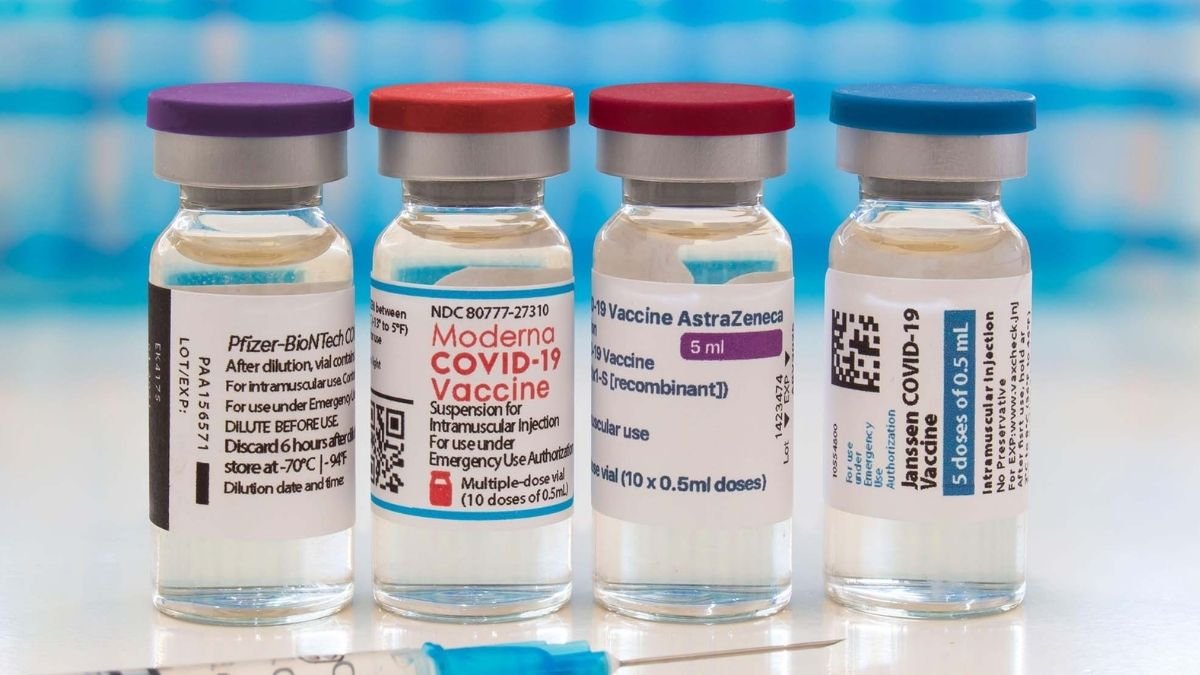The US Food and Drug Administration authorised a second booster shot of COVID-19 vaccine for vulnerable populations in the US in late March 2022, a move that was quickly endorsed by the Centers for Disease Control and Prevention. People over the age of 50, as well as certain immunocompromised individuals at a higher risk of severe disease, hospitalisation, and death, are eligible four months after receiving the initial booster shot.
A second booster shot is equivalent to a fourth dose for those who received a Pfizer-BioNTech or Moderna mRNA series, or a third dose for those who received the Johnson & Johnson single-shot vaccine.
People in these same vulnerable categories began receiving fourth doses in Israel in January 2022. The United Kingdom recently began administering a fourth dose to people 75 and older, dubbed the “spring booster.” Over 60-year-olds in Germany are now eligible for a fourth mRNA series shot.
I am an epidemiologist at the University of Texas Health Science Center School of Public Health, as well as the founder and author of Your Local Epidemiologist, a newsletter that translates cutting-edge public health research for everyday use.
The most recent recommendations have many people wondering about the importance of boosters for COVID-19 protection. Does the third shot lose its potency over time? Is a fourth dose required? What if you’ve previously been infected?
Following a review of the growing body of research on how the immune system shifts over time following each dose, it is clear that another booster for vulnerable populations has significant benefit with very little risk.

Vaccine efficacy after the first booster dose
There is clear evidence that the third dose of the mRNA series, or the first booster dose, was and continues to be critical for ensuring a robust immune response against the omicron variant in all age groups. This is due in part to the waning of the immune response over time, as well as the fact that omicron has proven to be partially effective at evading immunity from existing COVID-19 vaccines and prior infections.
But then there’s the question of how well the first booster’s immunity has held up over time.
The best real-time data on vaccine effectiveness over time can be found in the United Kingdom. The Health Security Agency in the United Kingdom currently has data for 15 weeks after the third dose, or first booster shot. According to the most recent report, the effectiveness of vaccines against infection declines significantly after the third dose. According to the report from the United Kingdom, vaccine effectiveness against hospitalisation is far superior to effectiveness against infection. However, even hospitalisation protection is eroding over time. While this information is useful, 15 weeks of follow-up data isn’t very useful in the United States because many Americans received their third dose up to 24 weeks ago.
A recent study looked at the long-term efficacy of a Moderna third dose after six months. Six months after the booster, researchers discovered dwindling levels of neutralising antibodies. Five months after the first booster, the CDC discovered significant waning protection against emergency department and urgent care visits. The vaccine’s effectiveness against hospitalisation decreased slightly but remained largely unchanged five months after the booster.
Information on the second booster dose/fourth shot
Now that Israel has been delivering a fourth dose for several months, researchers have some data on which to base their assessment of its efficacy. So far, three studies have been published, one of which has not yet been peer-reviewed.
In one study published in the New England Journal of Medicine, researchers looked at the rates of infection and severe illness after a fourth dose – or second booster – in over a million Israelis aged 60 and up. The researchers discovered that the rate of COVID-19 infection was two times lower after the fourth dose than after the third. This protection, however, quickly wore off after six weeks. They also discovered that the rate of severe disease was four times lower in those who received only three doses. It’s worth noting, however, that hospitalizations were extremely low in both groups.
Another study, also in Israel, looked at the efficacy of a fourth dose among younger health-care workers. The findings confirmed that antibody levels had significantly decreased five months after the third dose. Unfortunately, in this population of younger health care workers, the effectiveness of the fourth dose was no different than the effectiveness of the third dose. In other words, for young, healthy populations, a second booster of the same formula may not provide a meaningful benefit.
A third study, which has not yet been peer-reviewed, was conducted at a large health care system in Israel among people aged 60 to 100 years. 58 percent of the 563,465 patients in the health care system received a second booster. 92 people who received the second booster died during the study period, compared to 232 people who only received the first booster. In other words, the second booster resulted in a 78% reduction in mortality when compared to the first booster alone.
What if you had omicron-infected COVID-19?
The combination of being vaccinated and having had a COVID-19 infection is referred to as “hybrid immunity.” More than 35 studies have found that hybrid immunity provides complementary and comprehensive protection. This is because vaccine immunity targets the spike protein, after which the COVID-19 vaccines were designed, whereas infection-induced immunity targets the entire virus.
With a confirmed omicron infection, skipping a second booster is not unreasonable. This is not to say that people should intentionally contract SARS-CoV-2, the virus that causes COVID-19. However, hybrid immunity is clearly a viable path to protection.
In short, there is compelling evidence that a fourth dose – or second booster – provides meaningful protection among vulnerable populations, including people over the age of 60. As a result, another booster may be appropriate for some groups. While a fourth dose may benefit a small number of people, it is far more important that people receive their first, second, and third doses. The Discourse









































